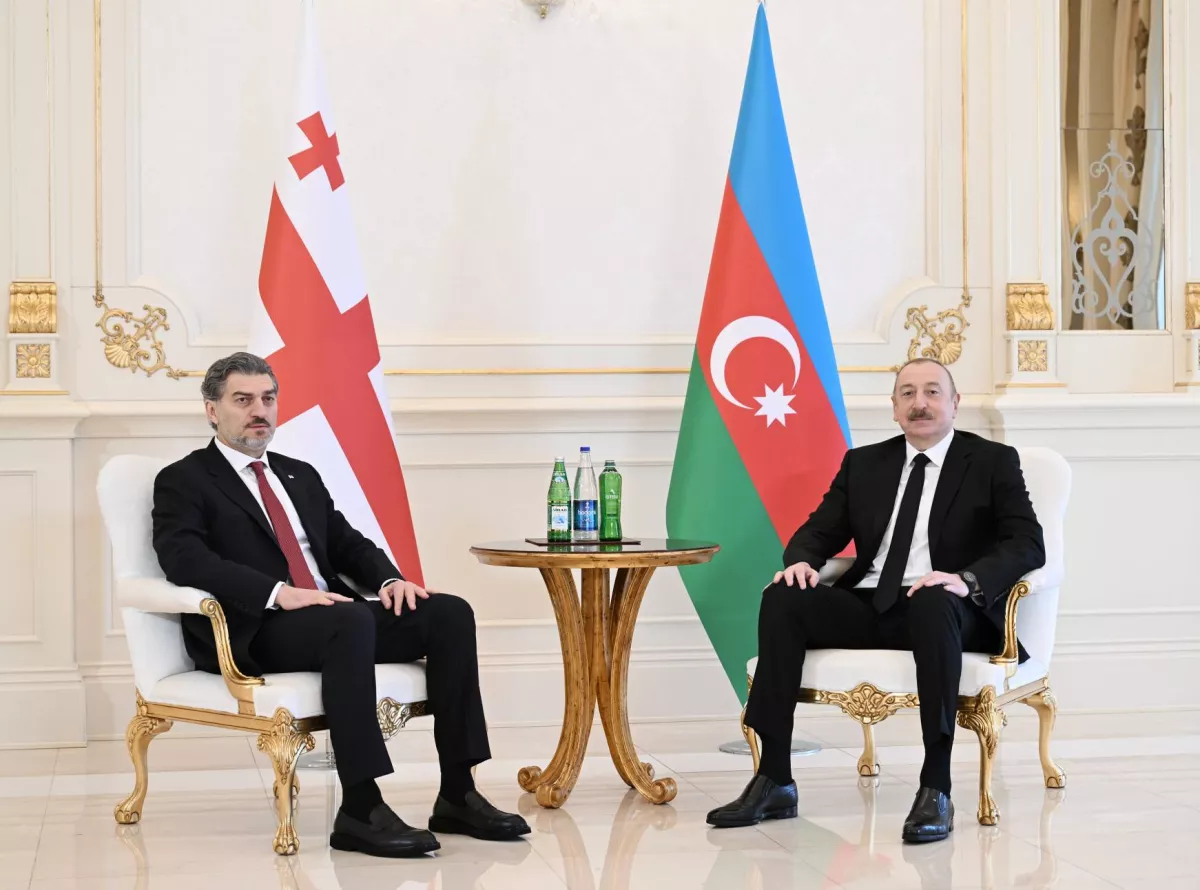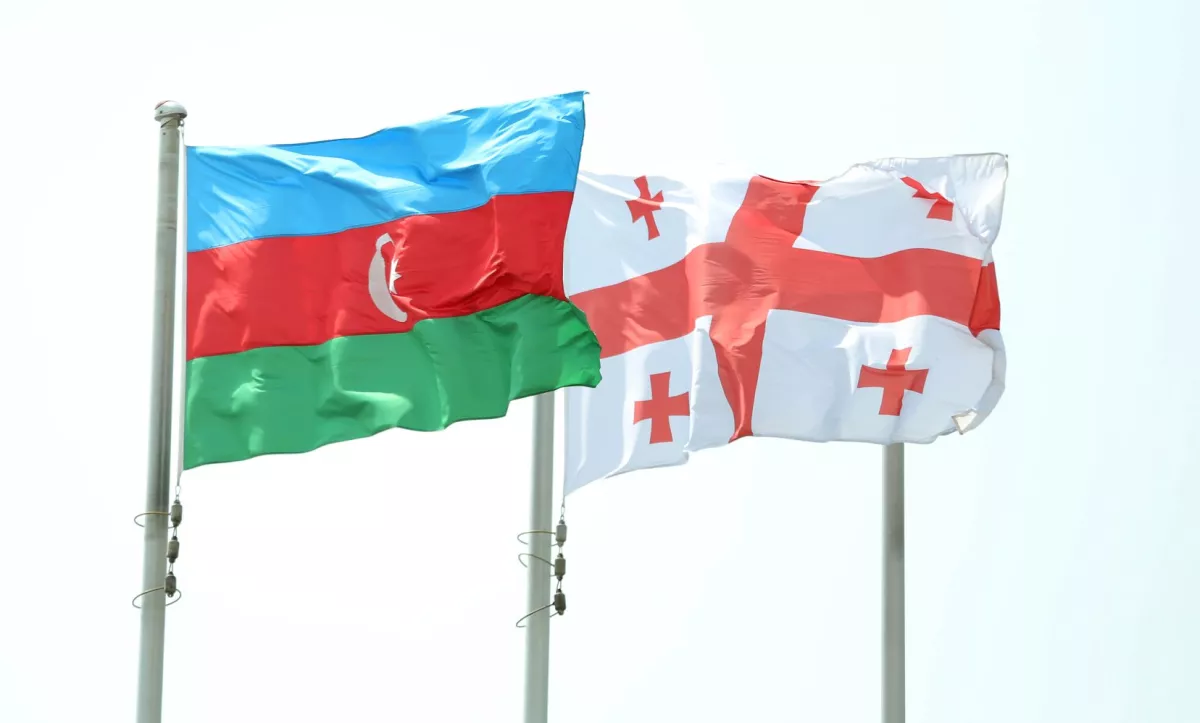Azerbaijan–Georgia alliance: Stability, trust, development Baku and Tbilisi synchronise their clocks
The traditionally friendly relations between Azerbaijan and Georgia have laid the groundwork for one of the most stable partnerships in the post-Soviet space. This relationship is built on joint initiatives in energy and transport transit. Over the past decades, this synergy has transformed the South Caucasus into an open and efficient hub for international business. Today, the two neighbouring countries play a vital role in ensuring Europe’s energy security. This message was central during the recent talks between President of Azerbaijan Ilham Aliyev and President of Georgia Mikheil Kavelashvili, who visited Baku on an official visit.
For many years, Azerbaijan and Georgia have been closely connected through joint transport and energy projects. A network of oil and gas transit pipelines runs through both countries, while Georgian ports are equipped with terminals for handling oil, fuel, and petrochemical products. These facilities serve as a key export route for raw materials from Azerbaijan and Central Asia to the markets of the Black and Mediterranean Sea countries, successfully contributing to Europe's energy security. In recent years, Baku, in partnership with Tbilisi, has also been actively implementing projects aimed at exporting electricity to the Turkish market, with onward transmission to several Southern European countries.
"The oil and gas projects, the oil and gas pipelines, and the transport and communication initiatives jointly implemented by Azerbaijan and Georgia are truly of great significance. These projects have not only reshaped the transportation and energy map of the South Caucasus but also that of the entire Eurasian region. If we are talking about the energy security of Europe today, it is impossible to imagine it without Azerbaijan and Georgia," President Ilham Aliyev stated in a joint press appearance with his Georgian counterpart. "Currently, Azerbaijan exports natural gas to 12 countries, including Georgia, and these exports are carried out through Georgia."

The President of Azerbaijan also emphasised that achievements in the transport and communications sector — including the construction of new railways and ports — have created significant synergy in both Azerbaijan and Georgia, becoming an integral part of the Middle Corridor. The head of state specifically highlighted that the numerous investment projects connecting the two countries are of great importance not only for Azerbaijan and Georgia but also for a much broader region.
It is worth recalling that Azerbaijani–Georgian business cooperation is actively developing on a bilateral basis. Currently, around 650 companies with Azerbaijani capital are operating in Georgia. Since 1995, Azerbaijan has invested over $3.6 billion into the Georgian economy. A substantial portion of these investments has come from SOCAR Energy Georgia, a subsidiary of Azerbaijan’s State Oil Company (SOCAR), which has contributed more than $1.1 billion to various initiatives. These investments include the Kulevi oil terminal and associated infrastructure, oil depots and filling stations, gas distribution pipelines, and more.
Today, approximately 10% of Azerbaijan’s total gas exports go to Georgia, and around 80% of the natural gas consumed in the neighbouring country originates from Azerbaijan. This figure is expected to steadily grow: in December of last year, the Georgian government approved the sale of the gas pipeline network in the western regions of the country to SOCAR Gas Georgia.
Nevertheless, the successful bilateral economic cooperation between Azerbaijan and Georgia — particularly active in the energy sector — holds far greater potential in the international context. Azerbaijan exports its natural gas via transit through Georgia, and in the past year, the country’s total gas exports reached 25.2 billion cubic metres, marking a 5.8% increase compared to 2023.

Thus, Azerbaijan has now firmly established itself as a reliable and strategically important partner in ensuring Europe's energy security. This message was once again reaffirmed during the 11th Ministerial Meeting of the Southern Gas Corridor Advisory Council and the 3rd Ministerial Meeting of the Green Energy Advisory Council, held on April 4 this year in Baku.
The growing significance of Azerbaijan in Europe’s energy landscape was underscored by EU Commissioner for Energy and Housing Dan Jørgensen, who stated: “In 2024, the EU imported around 11.7 bcm from Azerbaijan through the Southern Gas Corridor, 44% more than in 2021. Azerbaijani gas is reaching more and more customers across South Eastern Europe. One of our main priorities is to continue to implement the Strategic Energy Partnership with Azerbaijan.”
According to the Commissioner, while the EU supports discussions on gas supply, market demand, and the necessary modernisation of key gas infrastructure, it is simultaneously advancing the transition toward clean energy.
Notably, in terms of long-term cooperation with the EU in the field of green energy, Azerbaijan and Georgia are actively strengthening their partnership in the segment of electricity transit to the Turkish and European markets.
In particular, on 17 December 2022, Azerbaijan, Georgia, Romania, and Hungary signed an agreement on strategic partnership for the joint construction of the Black Sea Energy underwater power cable. The cable will stretch 1,195 km across the Black Sea seabed and have a transmission capacity of 1 GW.
According to preliminary estimates, the implementation of the Black Sea Energy project will take three to four years. Once completed, the cable will enable the delivery of up to four gigawatts of green electricity to Europe annually.
In Azerbaijan, which is actively developing its renewable energy sector, a significant surplus of capacity, amounting to several gigawatts, is expected in the long term. Around 80% of this green electricity is intended for export.
“By 2027, we plan to implement 10 renewable energy projects, which will provide around 2 GW of installed capacity and attract $2.7 billion in investment,” said Azerbaijan’s Deputy Energy Minister Orkhan Zeynalov during a recent forum titled “Innovative Pathways to a Green Future: Sustainable Energy and Emission Reduction.” According to the deputy minister, by 2030, the country aims to export 65% of the electricity generated from renewable sources.
Georgia is following a similar path. The country also possesses strong renewable energy potential — approximately 90% of its electricity is generated by hydroelectric power stations. Georgia plans to export its surplus electricity to the Turkish and European markets, further reinforcing the South Caucasus’ role as a regional energy hub.








